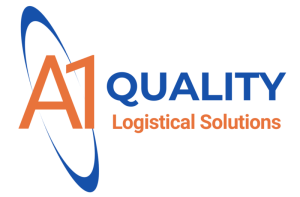A1 Quality Logistical Solutions
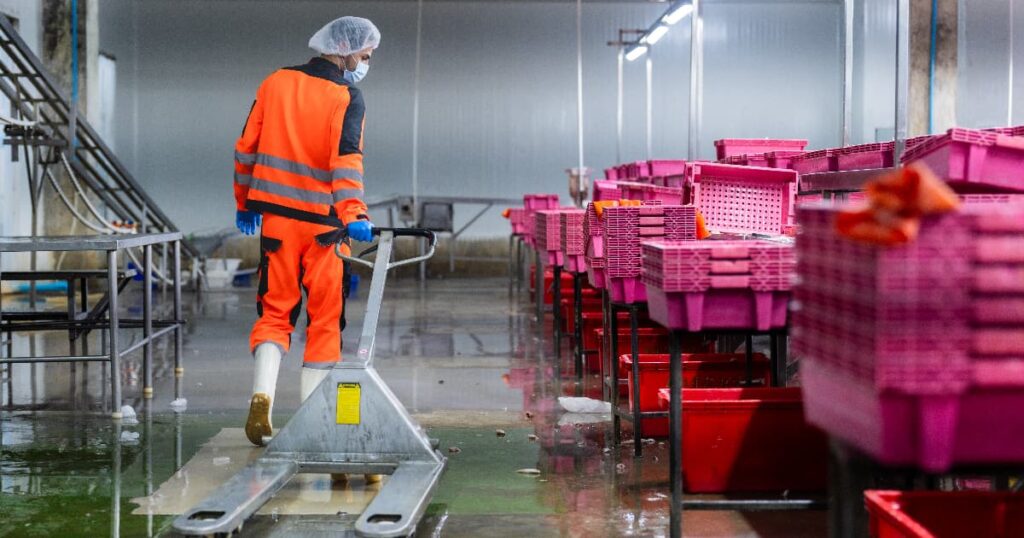
- By Haley
- July 17, 2025
Table of Contents
Key Highlights
- Outsourcing sanitation services for food warehouses ensures compliance with stringent regulatory requirements, particularly in the United States.
- Professional third-party sanitation providers help maintain food safety and elevate brand reputation by mitigating risks of contamination.
- Businesses can reduce labor costs, overhead expenses, and equipment investments with outsourced sanitation solutions.
- Access to expert services enhances the quality assurance of order fulfillment processes and warehouse operations.
- Outsourcing delivers scalability and flexibility, aiding supply chain management during seasonal fluctuations or business growth.
- Fixed service contracts facilitate predictable budgeting, enabling cost control for business owners.
Introduction
Effective logistics services and supply chain operations must always keep hygiene in mind, especially inside food warehouses. Clean and safe areas help keep goods moving without trouble and keep people safe from harmful germs. Still, handling cleaning duties on your own can use up workers and cut down on cost savings. When you let outside experts handle cleaning, your food warehouse can work better and focus more on what matters in the supply chain. This choice helps your supply chain stay up to standard and build a safer, more reliable network for everyone.
The Importance of Sanitation in Food Warehousing
Keeping your food warehouse clean is very important to stop contamination and protect your stock. If you neglect hygiene, it can slow down supply chain operations and hurt the quality of your products. Good sanitation helps you use your warehouse space better, keep your products safe, and cut down on waste.
Sanitation also matters a lot for inventory management. When the place is clean and free of pests, you get better storage conditions and a safer environment for order fulfillment. This base step is key for the success of the whole supply chain.
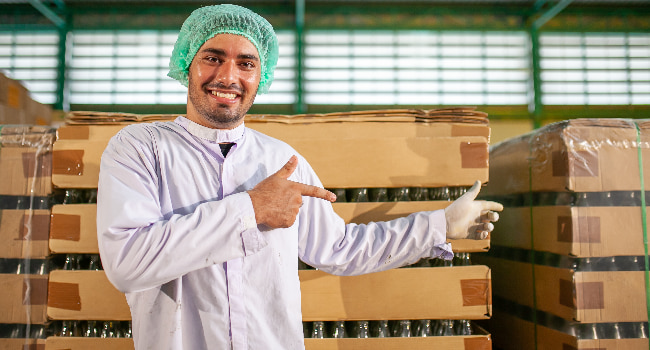
Regulatory Requirements and Compliance Standards in the United States
Following the rules for logistics operations is very important for food warehouses in the United States. The Food and Drug Administration (FDA) and the United States Department of Agriculture (USDA) set clear rules about keeping things clean and safe. These rules help the supply chain by making sure food is safe, keeping people healthy, and stopping contamination.
If warehouses do not follow these rules, they may have to pay large fines. It can also hurt their name and slow down supply chain operations. Regular checks help see if everyone is following the rules, so cleaning and keeping food safe should be done all the time.
Following standards like Current Good Manufacturing Practices (CGMPs) helps warehouses be on the right side of the law and work well. When companies hire outside experts to handle cleaning, they make sure to meet all the right rules. This way, they do not have to take people away from their main logistics work, helping with both compliance and getting more done.
Impact of Poor Sanitation on Food Safety and Brand Reputation
Neglecting sanitation puts food safety at risk. It also hurts a brand’s reputation in the eyes of customers. If products get dirty or unsafe, then people may not be happy with your company. This can hurt the trust people have in your brand. Things like recalls mess up inventory management and can disturb how the supply chain works.
Dirty storage places can bring pests. They can also ruin food products and slow down order fulfillment. When orders are late or damaged because of poor sanitation, customer satisfaction drops. This can change how much people trust and return to your brand. Problems can spread to logistics operations and really hurt how people see your company.
Having good sanitation habits is not just about keeping things clean. It’s needed to control quality and meet service goals. When a professional team handles this work, they follow steps that help keep the area clean. This also leads to better warehouse operations. In the end, it helps your company keep customer trust and look good in the market, even when there is a lot of competition.
Challenges of Managing In-House Sanitation Teams
Having your own cleaning team inside your company can raise labor costs for warehouse operations. It can also make things run less smoothly. You need to hire, train, and keep good workers, and that takes a lot of time, money, and focus from other parts of the business.
It is also hard to keep the same level of quality all the time. The team might not always follow rules or keep up with the right hygiene steps. This can affect how well the warehouse works. Looking into outside cleanup services lets businesses avoid these problems. It also helps logistics providers focus on their core competencies and make warehouse operations run better.
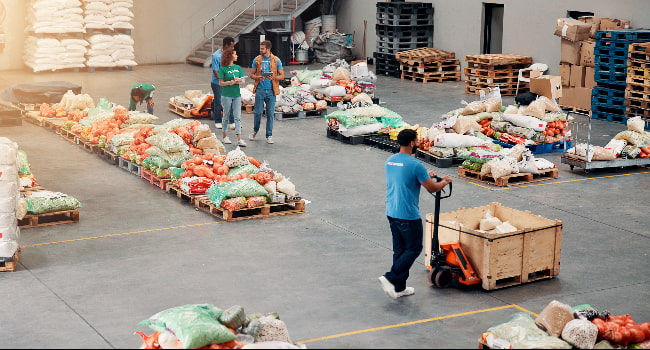
Recruiting, Training, and Retaining Qualified Staff
Hiring people with the right skills for sanitation jobs takes up a lot of resources. Labor costs, training, and trying to keep good employees often go past what business owners want to spend when they care about cost control. At the same time, people often leave sanitation jobs, so it’s hard to keep a steady team.
To keep staff, companies need to give better pay, benefits, and chances for growth. This makes overall costs go up. The time and effort spent dealing with all these things could be used to make the supply chain run better or help the company focus on what it does best.
When you outsource these jobs, logistics providers give you trained teams who can start right away. This takes away the trouble of hiring and helps warehouse managers focus on the fulfillment process, making everything run more smoothly.
Consistency and Accountability Issues
Keeping the same level of cleanliness is often hard when you use in-house teams. If there is no strong system for checking quality, cleaning jobs can fall behind. This can leave gaps in service and hurt the way warehouse operations run.
It can also be tough to keep the team responsible for what they do. When you do not check the cleaning work well, it can hurt your customer service. This is a big problem for people in logistics who want their delivery to be smooth. Bad cleaning can make warehouse management look bad and make people trust the business less.
When you outsource, the cleaning jobs get done right. The companies you hire keep a close eye on how well work is done. They make sure tasks meet the right standards because they are serious about team accountability. They check all work to make sure it lines up with customer service and warehouse operations needs.
Cost Implications of In-House Operations
Handling cleaning inside your business can lead to big financial stress. Costs often go up because you have to pay for recruiting, training, buying janitorial supplies, and fixing equipment. For most people, this makes it hard to keep track of cost control or find ways to save money.
On top of that, business owners always need to look at other overhead costs, like covering benefits and insurance for their workers. The money spent on these things adds up fast. It can use up saved funds, which then hurts warehouse management and brings profit margins down. There are just some expenses you can’t avoid.
Switching to outside cleaning services makes it easier to set your budget. Regular fees mean there won’t be any surprise costs. Plus, logistics operations get a boost because external services follow set professional standards. This lets business owners aim for financial stability and spend more time and energy on bigger plans to grow.
What Are Outsourced Sanitation Services?
Outsourced sanitation services are big cleaning solutions that logistics companies and third-party providers offer. The goal is to meet the quality needs of food warehouses and help with better supply chain management. These services help keep everything working well in the supply chain.
Third-party logistics experts know a lot about warehouse management systems. They handle all parts of sanitation from start to finish. This includes regular cleaning, taking care of equipment, and other support. By using outsourcing, facilities can stay compliant and work well, without having to manage their own in-house teams. This takes away a lot of stress for people in the supply chain.

Definition and Scope of Services Provided
Outsourced sanitation services help keep distribution centers and fulfillment services clean. They do all the important jobs needed for hygiene. This includes simple floor cleaning and also keeping high-risk equipment clean. Providers support logistics operations by making sure everything stay clean and runs well.
Fulfillment services also handle things like pest control and checking sanitation scorecards. Logistics service providers follow strong cleaning plans. These plans are made to help with inventory management and make customer order processing smooth and fast.
Outsourced services help reverse logistics too. They keep loading docks and recycling stations clean. This way, providers support smooth fulfillment services and help with returns. Businesses get better, dependable results, with less need to use their own staff.
Key Differences Between In-House and Outsourced Solutions
In-house sanitation systems and outsourcing vary significantly in setup, oversight, and cost. To highlight the distinctions:
Aspect | In-House Sanitation | Outsourced Sanitation |
Staffing & Training | Requires full recruitment and training efforts | Professionally trained teams ready-to-deploy |
Cost Efficiency | High labor and equipment expenses | Fixed-budget-friendly service contracts |
Service Quality | Risks inconsistency due to variable accountability | Standardized practices ensuring compliance |
Opting for outsourcing favors productivity by delegating sanitation compliance responsibilities to reliable logistics service providers.
Following these explanations is crucial for covering the multiple H Tags comprehensively. Ensure that each Tag includes fresh content insights drawn from the input provided.
Core Benefits of Outsourcing Sanitation for Food Warehouses
By outsourcing sanitation, food warehouses get the help of experts who know the best ways to keep things clean. This helps improve how well they run their logistics services. The people who provide this service use industry best practices. They make sure all parts of sanitation meet higher hygiene levels.
When food warehouses use advanced technology like warehouse management software, inventory management and warehouse operations get better. It lets warehouse managers spend more time on their core business. Because of this, supply chain operations become smoother and customers are more satisfied. In the end, choosing to outsource sanitation can bring good results in many parts of the organization.

Access to Specialized Expertise and Industry Best Practices
Outsourcing sanitation services lets you quickly tap into skilled experts without needing a lot of time or training. People who work in this area know the best ways to keep food safe. They use advanced technology and proven methods to boost hygiene at every step. This helps warehouses stay clean and meet safety rules.
Having these experts take part in your everyday work makes your logistics services run better. You get a smoother supply chain process. There is less chance of things going wrong, which keeps the customers happy. With the right support, your supply chain management becomes stronger, and you use every tool available to cut down on contamination risks. With all this in place, customer satisfaction will go up.
Enhanced Food Safety and Hygiene Standards
Outsourcing sanitation services is a good way to keep food safe and clean in warehouses. Having trained people to do this work makes sure that the newest and best methods are used all the time. This helps lower the chance of anything getting dirty and also helps businesses follow rules in the supply chain. It also helps show what is happening in the supply chain and makes things more clear for everyone.
Using advanced technology like warehouse management software helps keep better track of inventory management and helps watch over how clean things are. When a business follows strict cleaning rules, it can increase customer satisfaction. This also makes people think well of the food business. In the end, it helps these companies do well and meet growing safety needs in a tough market.
Improved Efficiency and Productivity
Streamlined processes in food warehouses help make everything run better. When you use specialized sanitation services, you can bring in advanced technology that fits the needs of your warehouse. This cuts out extra work and makes logistics operations better and faster. With this setup, food warehouses can focus on what they do best, such as inventory management and getting orders shipped out on time. Also, when businesses work with others outside their own company, they can add more flexibility into the supply chain and change quickly when there’s a need. Good sanitation keeps high hygiene in place and cuts down on delays. That way, things get shipped out faster, and customer satisfaction goes up.
Cost Savings and Financial Advantages
Outsourcing sanitation services can help food warehouses save a lot of money. When you use specialized providers, you get to lower your labor and overhead costs. This lets your business put more time and work into its core competencies, instead of spending energy and money on in-house teams. There is also no need to spend as much on equipment and supplies, because these sanitation service providers tend to use advanced technology along with the best practices in the industry.
Having a set service contract gives you a fixed cost, so budgeting gets easier and more predictable. It becomes possible to have better financial planning. This method is good for your cash flow, so you can use your resources smarter in your supply chain operations. In the end, this helps boost your profitability, making it a good choice if you want cost savings and want to strengthen your supply chain.

Reduced Labor and Overhead Expenses
Choosing the right technology for collecting data is important if you want to measure key performance indicators well. Advanced systems like warehouse management software help with inventory management. They also make logistics operations easier and faster.
When you use KPI dashboards, you get real-time insights. This helps you make quick choices and handle customer satisfaction problems at once.
Connecting your data collection tools to the supply chain management processes lets you keep better track of order volumes and how many orders get filled. When a business makes use of the right technology, it can find ways to reach operational excellence. This helps to meet strategic goals and keep making things better across the whole organization.
Lower Investment in Equipment and Supplies
Outsourcing sanitation services helps cut down on how much you need to spend for equipment and supplies. This change lets food warehouses put their money and time into the main parts of their business. When you hire a service provider that bends on this work, you get to use advanced technology and the best cleaning supplies. Warehouses do not have to buy or look after these items on their own. This drops a lot of the big starting costs. It also makes inventory management much easier for them.
Because of this, companies can use their money in other ways. Businesses can grow and aim at building up their supply chain operations. In the end, working with a service provider in this way helps get the most out of both their supply chain and their core business.
Predictable Budgeting with Fixed Service Contracts
Fixed service contracts help you plan your budget by giving you a clear idea of what you will have to pay for sanitation services. This means you can be sure of the costs and avoid surprises. Business owners can easily guess what they will spend, match these costs to their supply chain operations, and avoid extra charges for labor or equipment.
When you hire outside sanitation providers, you often get all-in-one service packages. This adds more transparency, as you will know what you get and can trust there are no hidden costs. Because of this steady setup, food warehouses can manage their resources well, keep the right inventory levels, and improve customer satisfaction by making sure products stay safe and good every time.
Risk Management and Liability Reduction
Making sure that a food warehouse is safe and clean helps to lower the risk of contamination and the chance of costly recalls. These things are very important in a food warehouse. When you work with a service provider that specializes in sanitation, you can make your risk management better. They use industry best practices and advanced technology to meet the strict rules that apply to this type of work. When you let the service provider handle this key job, your business can give more attention to its core competencies and reduce risks and liability.
Having good sanitation also makes it easier to pass inspections and stay in line with the rules. This can help your food warehouse keep a good name and boost customer satisfaction. In the end, it leads to smoother supply chain operations and helps everything work better in your supply chain.
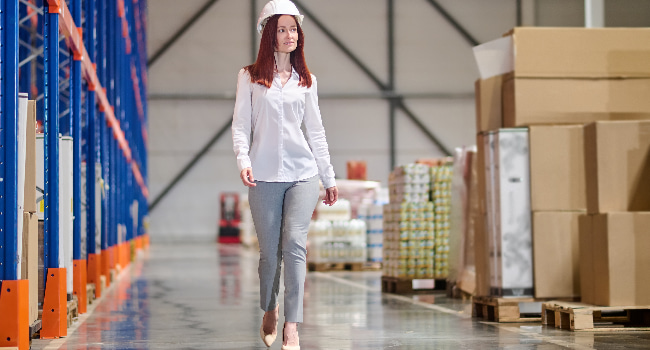
Minimizing the Risk of Contamination and Recalls
Using effective sanitation methods helps to lower the chance of contamination in food warehouses. This is very important for these businesses. By getting help from specialized sanitation services, companies can use the best industry practices. This helps be sure that every area in their operation meets strict hygiene rules. Paying attention to all the details makes risks like product recalls less likely. It also makes the food safer for everyone and gives people more trust in the business.
Along with this, using advanced technology and tools for inventory management is also very important. It helps make sure that a business can react right away if there is any sign of a contamination problem. This helps keep the product safe and protects the business’s good name.
Ensuring Regulatory Compliance and Passing Inspections
Food warehouses need to follow industry rules to stay safe and legal. When you hire outside sanitation services, you get the help of experts who know the latest safety rules and cleaning methods. With their help, a food facility can lower the risk of contamination. This keeps the product safe and protects its quality.
Trained sanitation teams also make sure every cleaning step meets or is better than the set rules. This is very important when inspectors come to check your place. Taking action like this keeps the workplace safe. It also helps raise customer satisfaction because it shows you care about food safety at every step in the supply chain. This builds trust across the entire supply chain, from start to finish.
Scalability and Flexibility of Outsourced Sanitation
Outsourcing sanitation services helps make food warehouses more flexible and able to grow as needed. It lets businesses change how they work to keep up with new market conditions and busy times. This means warehouse operations can match up with changes in inventory management. You can also build a service plan to fit the size of your warehouse, so everything is made just for your team. It also stops the warehouse from using too much of its resources.
A specialized service provider knows what they are doing and helps the warehouse to scale operations in a good way. This boosts logistics services and helps give better customer satisfaction. When you work with the right team, everyone wins—the warehouse, the customers, and the logistics.
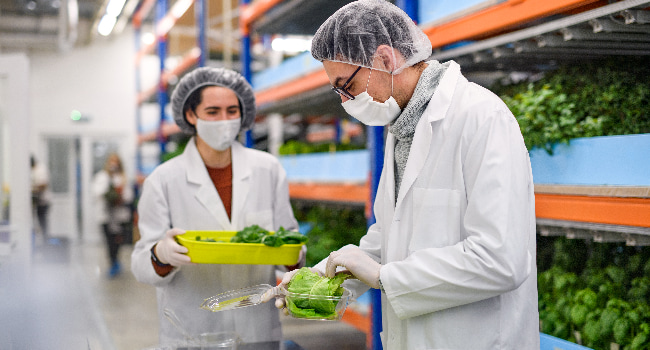
Adapting to Seasonal Fluctuations and Business Growth
Responding to changes in the seasons and growing your business needs a quick and flexible approach to keeping things clean. By outsourcing sanitation services, food warehouses can quickly adjust when their inventory levels or customer orders go up or down. These specialist companies know how to change their plans, so hygiene and safety stay high, even in busy times.
Advanced technology helps everyone talk clearly and make changes fast when things shift, which increases supply chain visibility. Being able to scale like this keeps customers happy and makes logistics operations work better, while using warehouse space in the best way. This kind of flexibility means the business can act fast, no matter what the market conditions are, and can always keep the best food safety in place.
Customized Service Plans for Different Facility Sizes
Different facility sizes need to have sanitation service plans made just for them. One plan for all does not usually save resources or keep hygiene at its best. Using advanced technology, these services can create custom strategies built around the needs of each place. They think about things like inventory management, how much warehouse space is there, and labor costs. This helps logistics operations run better.
Custom plans make supply chain work smoother. Businesses get to handle changing market conditions and customer orders with more ease. Having this flexibility makes operations work well. It also gives a better customer satisfaction level. Plus, it helps tie warehouse management software into the process. So, the service delivery fits well with how the company runs.
How to Choose the Right Sanitation Service Provider
When you look at possible sanitation service providers, start by checking their credentials and certifications. This is the best way to know if they meet the right industry standards. You should also see if they have any experience with food warehouses. If they have a solid track record with these places, they will likely get the special needs in logistics operations.
It helps if the provider can change their services to fit your needs. This kind of flexibility lets your business handle new market conditions as they come up. To get a better idea of what to expect, read customer testimonials. These can tell you a lot about the provider’s customer service and how reliable they are.
If you keep all these things in mind, you can find the right partner for what you need. They will work well with your core competencies and fit into your daily operations.
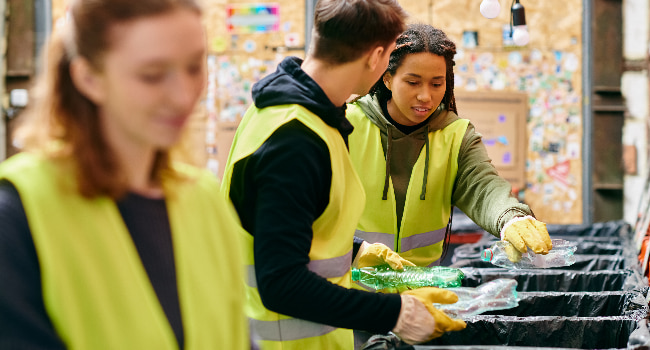
Evaluating Credentials, Certifications, and Experience
A good look at the credentials, certifications, and experience of a sanitation service provider is very important. You should check for industry certifications. These show the provider follows food safety rules and good hygiene. This helps keep your products in the best shape. It is also good if the provider has experience with work like yours. They should know the needs of food warehouses. This kind of background shows they can handle logistics services well. It also shows their promise to increase customer satisfaction. The right provider will work with the rules during the whole fulfillment process. A strong track record shows you can trust them to give steady results.
Assessing Service Offerings and Flexibility
It is important to look at all the services a sanitation service provider can offer. Think about what your facility needs, like cleaning plans made just for you or special tools that help with different cleaning jobs. When the service can change to fit your needs, it helps your warehouse work better and makes your logistics operations run smoother. A good service provider will change the way they work, depending on your inventory levels or busy seasons. This helps your business run well every day of the year. To get the best results for your core business, choose a provider that uses advanced technology and has a strong track record in the industry.
Reviewing References and Customer Testimonials
Looking at feedback from past clients is a key way to find a good service provider. Customer testimonials let you see what other people say about a sanitation company’s service quality and if you can trust them. References also help you see how the provider handles different logistics services in the supply chain. When you talk to people who have worked with them before, you get a better idea of their track record in keeping high hygiene standards and being flexible for different facility needs. All this helps you make better choices that fit what your business or operation needs.
Implementation Process for Outsourced Sanitation
A smooth start is very important for the success of outsourced sanitation services in food warehouses. The first step is to do an assessment. This helps see the exact needs of the place based on its logistics operations and its current inventory problems. A good plan for the change helps make sure that workers know how to use any new steps and tools.
Onboarding includes training the team. This helps them know the rules for keeping up quality. Talking to each other all the time lets everyone see how things are going and if there is a need to change anything about the service. Staying in touch like this helps everyone follow hygiene rules and keeps all work running well.
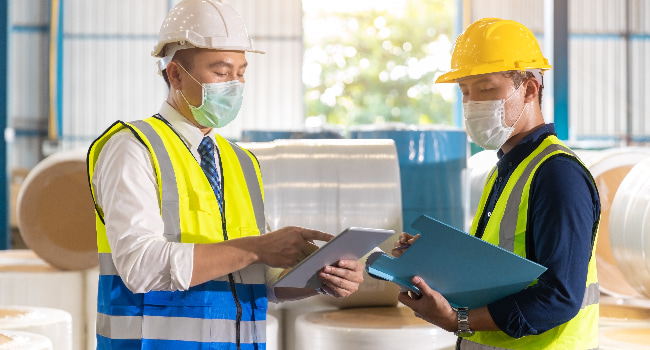
Initial Assessment and Transition Planning
A good first check is needed to find out the real cleaning needs of food warehouses. You have to look at the way things are done now and see if there are any rules not being followed. Planning for change should include ways to fit special cleaning services into the usual logistics operations. This helps make sure there is little to no stop in how the warehouse does its daily work.
Setting up one single point of contact can make it easier to talk and share information. It makes quick changes possible when inventory levels or market conditions change. If you have a clear and strong plan, bringing in new steps goes smoothly. In the end, this makes food safer and helps all the work in the warehouse go better.
Onboarding, Training, and Quality Assurance
A good onboarding program helps new sanitation service providers fit in smoothly at food warehouses. Training classes teach the best ways to keep things clean and safe. These lessons match the special needs of each facility. Ongoing checks help make sure everyone follows food safety rules. This also keeps things running well in supply chain operations.
Regular checks and feedback help to make the service better. This leads to better inventory management and lowers the risk of things getting dirty or spoiled. With this setup, hygiene is protected. This way of working also helps people aim to get better all the time, with steps that match the best ways the industry does things for supply chain success.
Ongoing Communication and Performance Review
Setting up a regular plan for talking and checking on work helps make sure that cleaning services match a warehouse’s goals. When you have regular check-ins, it is easier for people to share feedback. This helps you change things when the way of working in logistics services and supply chain operations shifts. Using simple checks, like following hygiene rules and how fast workers respond, lets you see if things are working well. Looking at how others in the industry do things helps warehouses improve their own cleaning plans. This also makes sure customers are happy and food safety stays high. Taking these steps helps make the entire supply chain better, bit by bit, over time.
Conclusion
Outsourcing sanitation services can give food warehouses a big advantage in the market. When you work with people who really know about cleaning, it helps you follow food safety rules better and make your warehouse operations run smoother. This way, you will save on costs. It also lets your business focus on what you do best, your core competencies. Customized service plans make it easy to change with the market conditions and adjust for busy times. Teaming up with a service provider helps you keep your place clean. It also makes your supply chain stronger. In the end, this leads to better customer satisfaction and sets you up for long-term success.
Frequently Asked Questions
What are the most important certifications for sanitation providers in food warehouses?
Sanitation providers in food warehouses need to have certain certifications. These include the Safe Quality Food (SQF) certification, ISO 22000 for food safety, and the Hazard Analysis Critical Control Point (HACCP) certification. Having these means they follow the set rules of the industry. It also shows their commitment to keeping good hygiene at all times.
How do outsourced sanitation teams ensure compliance with FDA and USDA standards?
Outsourced sanitation teams help stay in line with FDA and USDA standards. They do this by using strict cleaning steps. The teams use only chemicals that are approved. All staff get up-to-date training on food safety rules. They check and review their process often. These regular checks help them keep up with changing rules. This way, they cut down the risks that come with foodborne illnesses.
Can outsourcing sanitation help reduce insurance costs for food warehouses?
Outsourcing sanitation helps food warehouses save money on insurance. When you let others handle cleaning, there is less risk of germs and dirt in your building. This makes it easier to follow rules and keeps things cleaner. All of this means you face fewer problems and claims. As a result, you may be able to pay less for your insurance.
How quickly can an outsourced provider respond to emergencies or contamination events?
An outsourced sanitation provider can usually get to emergencies or any contamination event in just a few hours. Their teams are trained well and can move fast. This means they act quickly, fix the problem, and keep downtime low. Getting this fast response is very important to keep food safe and follow warehouse rules.

Haley serves as the Marketing Manager for A1 Quality Logistical Solutions. She joined A1QLS in 2023 with her prior experience gained with GXO and XPO Logistics.
